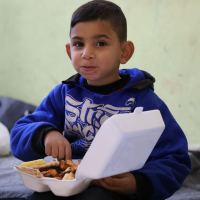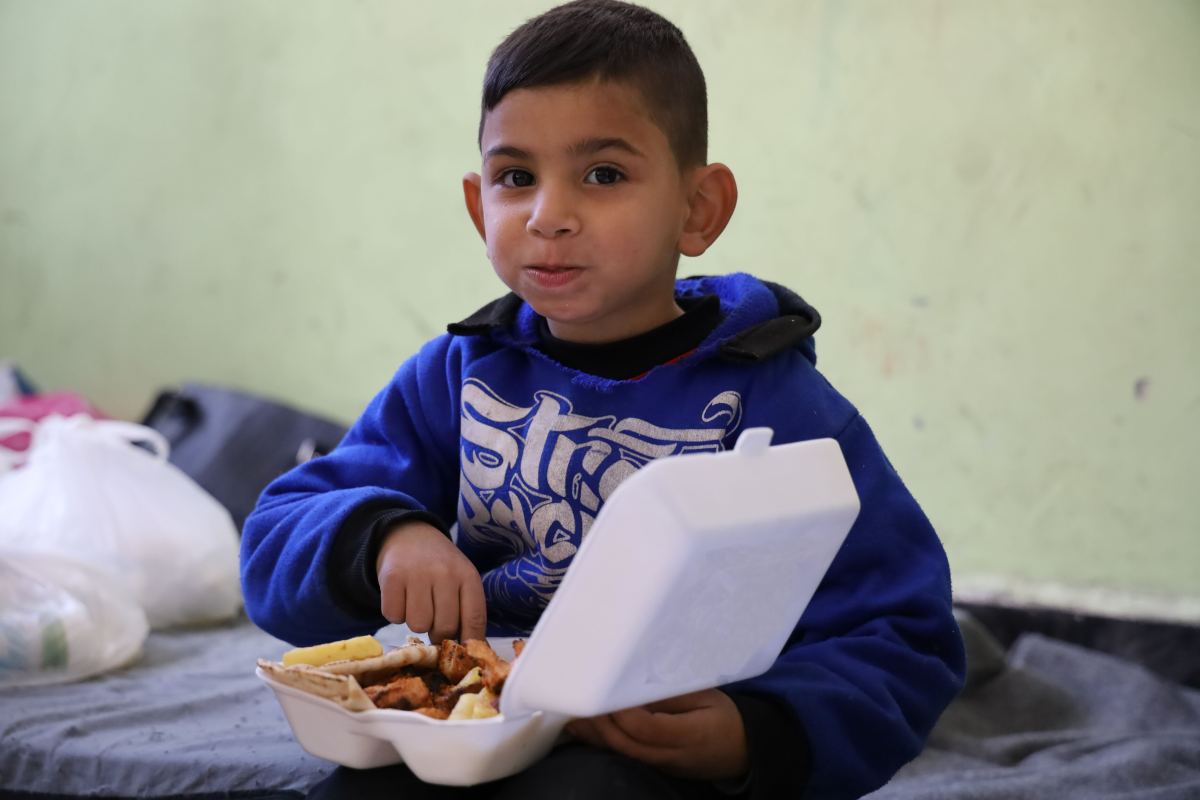Gossipy laughter surfs above the thwak thwak thwak of a knife against a chopping board. To the side, a mound of freshly diced onions glistens pearly white under the overhead kitchen light. On the stovetop, a frying pan sizzles with kebab karaz, the sour cherries winking between kafta meatballs in a sauce rich with cinnamon and cardamom. More laughter rumbles from the balcony, which wraps the kitchen, bedrooms, and sitting room in a white stone hug.
This idyllic scene once played out in countless homes across Damascus, a cosmopolitan city visited by numerous European tourists, and Aleppo, an eclectic city that Kurds, Christians, Arabs, Armenians, and Jews once called home. Those were the before-days, a time before bloodshed, unprecedented destruction, and an economic armageddon destroyed Syria, a county at the cross of civilizations.
War can kill our family and friends and ravage our communities, but it cannot destroy our generosity and kindness, the essence of our shared humanity.
This March 15, we’re remembering the before-days, refueling ourselves for the work of rebuilding Syria that lies ahead.
Coming of Age in Damascus
The Damascus Saad* remembers is a Damascus of big family dinners and a strong sense of community. He describes weekly or biweekly get-togethers with aunts, uncles, and cousins, meeting at Grandma’s house to cook. Saad remarks that extended family dinners were ubiquitous in Syria. “In Syrian culture, there is a huge focus on family.” During Ramadan, the holy month of fasting to celebrate the angel Gabriel revealing the Qur’an to the prophet Mohammad, Saad’s extended family would gather more often, sometimes every two or three days, for iftar, the evening meal to break the daily fast.
Saad’s childhood and adolescence in Damascus were punctuated by summer respites in Latakia, a Syrian port city on the Mediterranean Sea. Because Saad’s grandfather had a house in Latakia, the family would spend one week in the city and a week at the beach. Like other teens off from school, Saad would swim at private hotel beaches, walk around town with his friends, and just have fun. Even in Damascus, where he played on his high school football team in between guitar jam sessions, he could walk around at 3 am without fear. Syria was safe in those days.
“It’s not just your friends [who died]. It’s that guy from the supermarket [you’re used to seeing.]”
Life in Wartime
When the Arab Spring started, Saad and his friends were convinced unrest would not spread to Syria. Then, there were some protests in the south of their country, but Saad and his friends did not think violence would spread to Damascus. He had just graduated from high school and was preparing to start university in Beirut. Three months later, on a visit home, he couldn’t believe how much had changed. Smoke rolled off the buildings and into the streets, and helicopters constantly flew above the city. “It felt like a dream how fast it [war] escalated,”’ Saad remembers. “People would look up while driving, watching for missiles falling nearby.” Hearing stories about people he knew dying was painful. Then, it became common. “It’s not just your friends [who died]. It’s that guy from the supermarket [you’re used to seeing.]”
Syrian Resilience
“These people have nothing, but they try to give you coffee, tea, or fruit if they have it,” Saad explains. There’s a “sense of hospitality because you entered their home.”
After everything he has experienced, Saad still has hope. He used to work with our local partners in a Syrian refugee camp in Lebanon. If he were ever in a bad mood when he went to work, his spirits would lift after a few moments of being in the camp. Despite losing everything, people in the camps “are always laughing and joking all the time.” Being around them, Saad would end up smiling too. “These people have nothing, but they try to give you coffee, tea, or fruit if they have it,” Saad explains. There’s a “sense of hospitality because you entered their home.”
War can kill our family and friends and ravage our communities, but it cannot destroy our generosity and kindness, the essence of our shared humanity. No matter how forlorn life in Syria looks after 12 years of war and three recent earthquakes, life also shamelessly reasserts itself in a proffered hot meal, a child’s curious glance, or a shared plate of french fries among friends.
After the Earthquakes
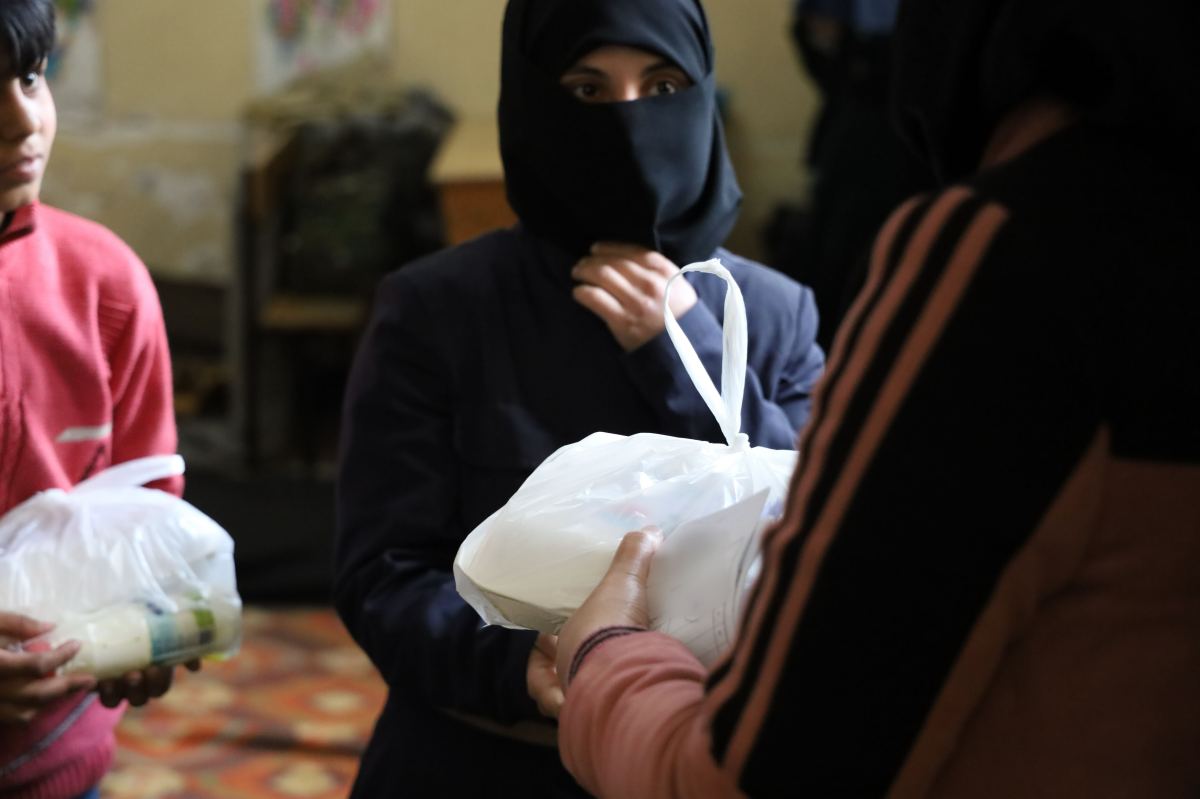
A proffered hot meal. Photo by our local partner for Preemptive Love. 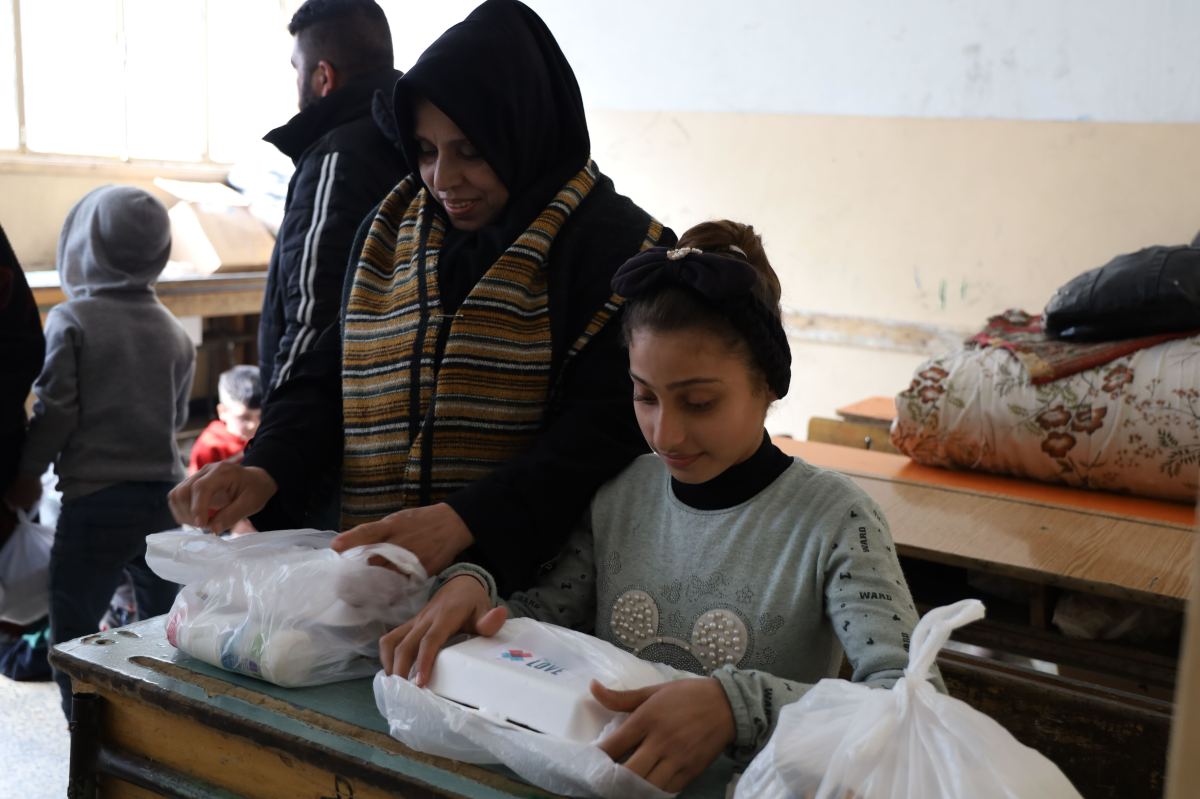
A nourishing meal gives moms one less thing to worry about. Photo by our local partner for Preemptive Love. 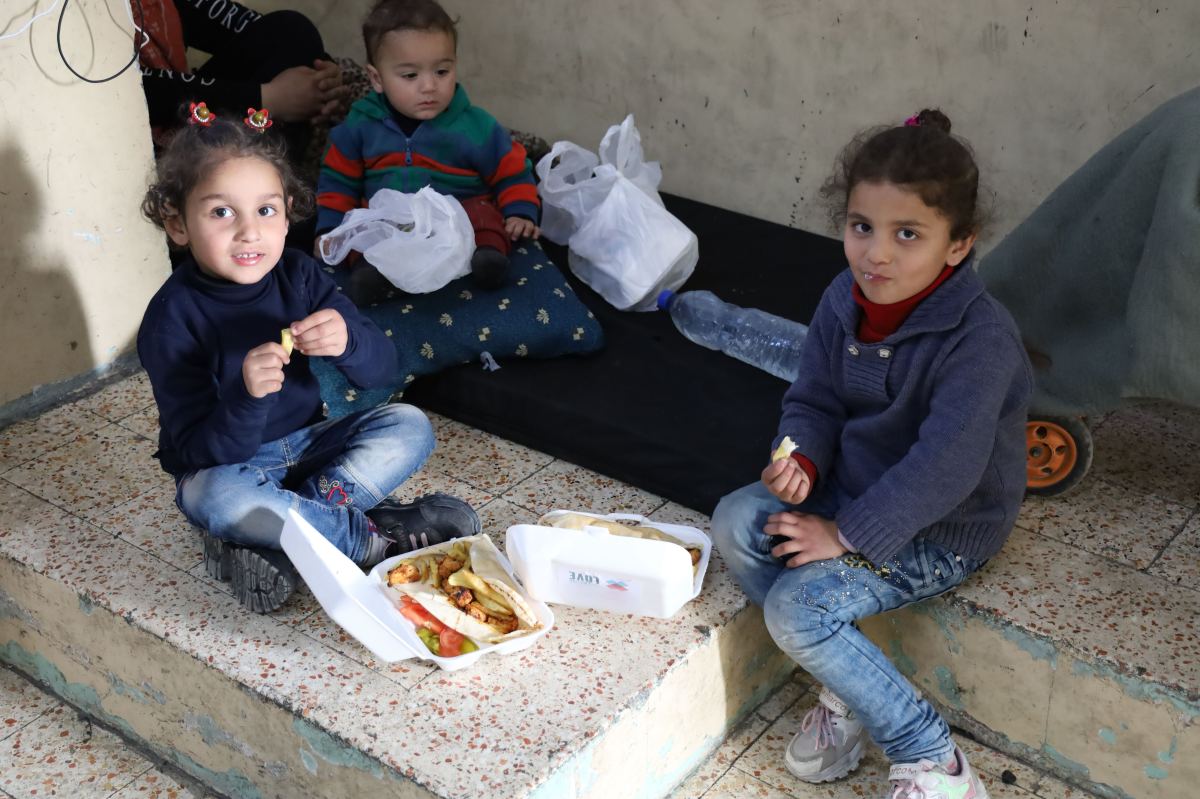
Fries taste best when shared in company. Photo by our local partner for Preemptive Love.
Syrians now have another way to divide time: after-the-earthquakes. Like the civil war, the earthquakes killed loved ones and obliterated communities but did not destroy compassion. Perhaps that’s why you showed up, first with food boxes, because you know that sharing a meal is one of the most fundamental ways to reaffirm life. You didn’t stop there. You brought thick, quilted, family-sized blankets to keep our Syrian friends warm and safe. You thought about those who didn’t have the means to cook and brought comfort food of hot kebabs, reminders of better times. And you’ll be doing it all again. And again, for however long it takes our Syrian friends to rebuild.
Each food box, each quilted blanket, and each hot meal is an act of humanity that tells our common story. Be a part of that story and join us. A small donation says “Yes” to resilience in times of despair. Subscribing to our blog reaffirms your belief in the connecting power of kindness. Sharing this story is taking a step towards building a more peaceful world.
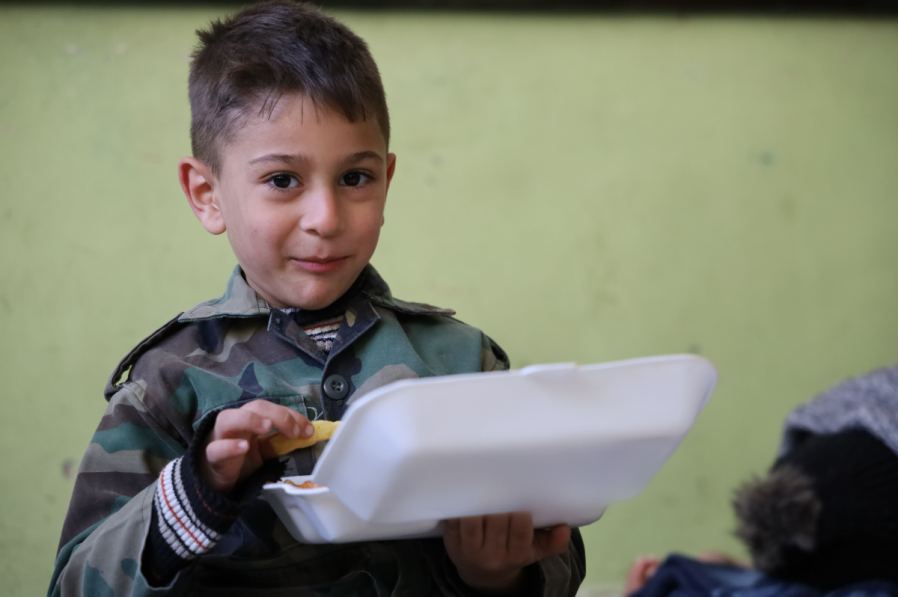
*Not his real name
Each food box, each quilted blanket, and each hot meal is an act of humanity that tells our common story. Be a part of that story.

